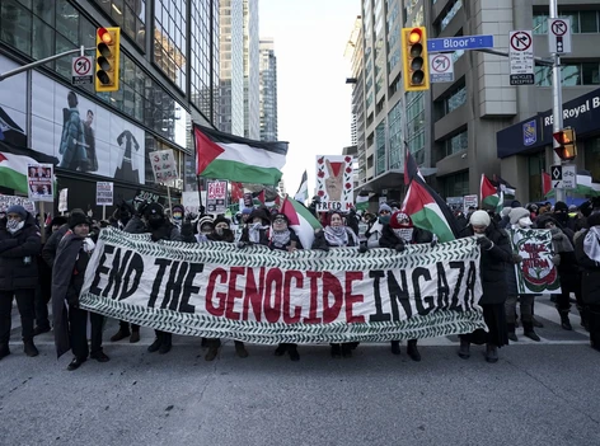
A member of staff wearing a face shield speaks on the telephone in a Furniture Village store in Croydon, in south-east London on June 5, 2020, following the easing of the lockdown restrictions during the novel coronavirus COVID-19 pandemic. UK retail sales dived by a record 18.1 percent in April with the country in coronavirus lockdown. Most shops will soon be allowed to reopen, as Britain -- with the worldís second-highest death toll in the coronavirus outbreak -- took its biggest step out of l
On Monday 23 March, Boris Johnson announced that the UK had been placed under lockdown amid the coronavirus pandemic, a measure that involves the implementation of several rules.
These rules include a ban on public gatherings of more than two people, a short list of reasons why people may be allowed to leave their homes and the closure of all shops that do not sell essential items.
The government has provided further detail on the closure of shops, outlining exactly what kinds of shops are affected and which are permitted to continue operating.
Here is everything you need to know:
What essential shops are allowed to stay open?
The prime minister said all shops selling non-essential goods, such as clothing and electronics, would be closed with immediate effect.
The governmentís guideline outlines all the retail businesses that are authorised to stay open, as they sell products deemed to be essential to the general public.
The list includes food shops, including supermarkets; health shops, such as pharmacies; petrol stations, home and hardware stores; garages; car rentals; pet shops; corner shops; newsagents; post offices; banks; bicycle shops and laundrettes and dry cleaners.
Market stalls that sell essential items, such as groceries and food, are also allowed to stay open.
The government has stated that for retail premises that do remain open, they must follow stringent social distancing rules.
These including ensuring there is a minimum distance of two metres between customers and shop assistants, only letting small groups of people enter at a time and enforcing queue control outside stores.
On Wednesday 25 March, it was announced that off-licences had been added to the list of shops that are allowed to stay open.
Licensed shops that sell alcohol, including those in breweries, have also been added to the updated list of businesses that have not been ordered to close.
Can people still order takeaway food?
While restaurants, cafes, pubs and bars have been ordered to shut, food deliveries and takeaways are still allowed.
"People can continue to enter premises to access takeaway services, including delivery drivers," the government said.
Furthermore, cafes and canteens in hospitals, care homes and schools are allowed to stay open, as are canteens in prisons and military facilities and services that cater for the homeless.
The government has also said that "planning regulation will be changed" so that restaurants, cafes and pubs that do not currently offer delivery and takeaway can start doing so.
"People must not consume food or drinks on site at restaurants, cafes or pubs whilst waiting for takeaway food," the guideline added.
It was recently announced that Deliveroo had teamed up with Marks & Spencer and BP fuel stations in order to deliver basic essentials to households that are in self-isolation.
Around 120 Marks & Spencer branches across the UK are taking part in the initiative, and there are no delivery fees.
Deliveroo is also setting up a service called Essentials by Deliveroo, which will help households get hold of items such as tinned goods and pasta.
What non-essential premises must close?
The businesses that have been described as non-essential and therefore ordered to close immediately include food establishments such as restaurants and cafes; hair and beauty salons; tattoo and piercing parlours; massage parlours; retailers such as clothing shops; outdoor and indoor markets that do not sell essential goods; auction houses and car showrooms.
Can consumers still do online shopping?
While all non-essential retailers must close in accordance with the governmentís newly-instated regulation, consumers can still shop online.
"Online retail is still open and encouraged and postal and delivery service will run as normal," the government said.
On Monday 6 April, the Royal Mail introduced new changes to its policies in relation to the Covid-19 outbreak.
"Despite our best endeavours, it is possible that some areas of the country may experience a reduction in service levels due to Coronavirus-related absences at their local mail centre or delivery office," the Royal Mail said.
The organisation announced it had changed the opening times of its Customer Services Points (CSPs) in local delivery offices, with larger locations being open from 7am to 11am and other locations being open from 7am to 9am. All Customer Service Points will be closed on Wednesdays and Sundays.
"Because more people are home than would usually be the case, we are able to deliver the vast majority of items on the first attempt. This has resulted in fewer people collecting items from CSPs," the firm said.
The company also temporarily extended the retention period for parcels, and explained that any items that canít fit through a personís door will be placed on the floor, before the person delivering the item steps aside to a safe distance.
(Source: Reuters)
LINK: https://www.ansarpress.com/english/18222
TAGS:






























 Farkhunda Buried, Ghani Appoints Fact-Finding Team
Farkhunda Buried, Ghani Appoints Fact-Finding Team




